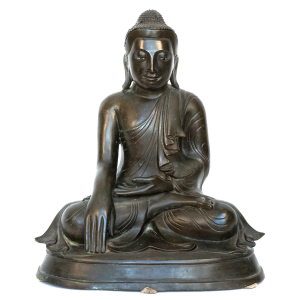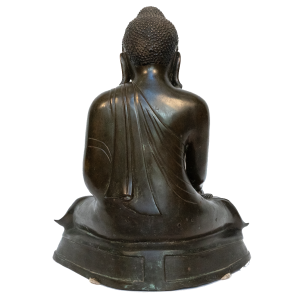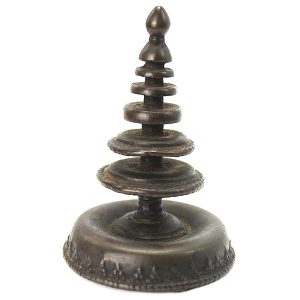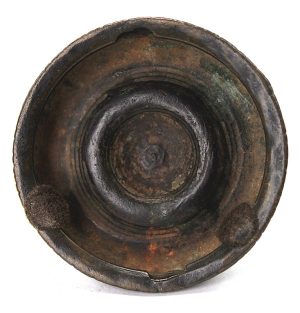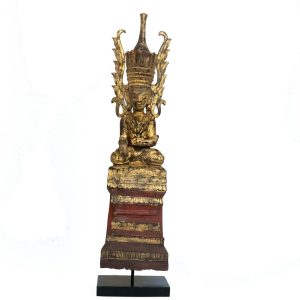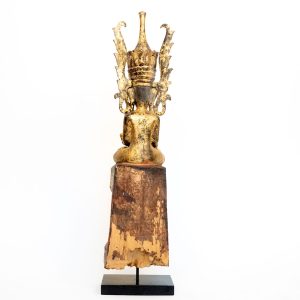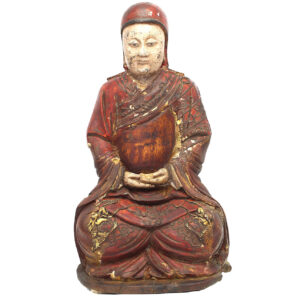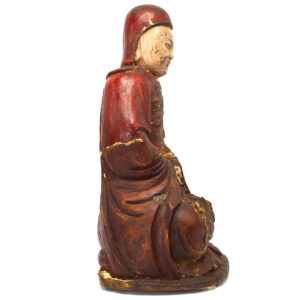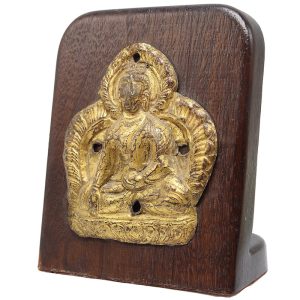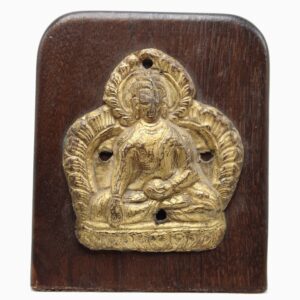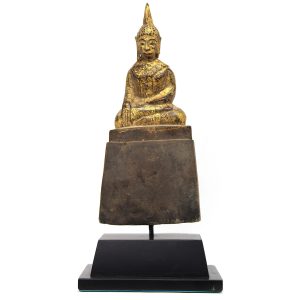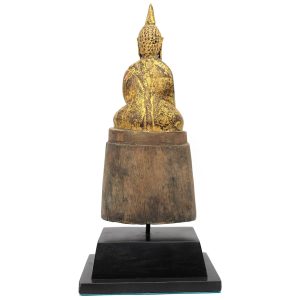-
Sale!


$3,800.00 Original price was: $3,800.00.$2,900.00Current price is: $2,900.00.
H: 22” W: 17” D: 11” | CALL 213-568-3030 or email us at [email protected] FOR SHIPPING
Finely modeled vintage Mandalay style Burmese bronze Buddha in Earth Witnessing mudra made by lost wax process is a one-of-a-kind exquisite work of art. Soft youthfully sweet smiling face with almond-shaped eyes are inlaid with glass.
-
Sale!


$425.00 Original price was: $425.00.$295.00Current price is: $295.00.
H: 3.5″ Dia 2.5″ | FREE SHIPPING WITHIN CONTINENTAL U.S.
Hand-made metal Nepalese 7-level stupa/pagoda with decorative details around the base and round eaves with scalloped edges used for personal worship.
-
Sale!


$2,350.00 Original price was: $2,350.00.$1,950.00Current price is: $1,950.00.
H:26″ W: 10″ D: 5″| CALL 213-568-3030 OR EMAIL [email protected] FOR SHIPPING.
Rare, gilt covered Jambupati Buddha in Earth Witnessing position on high multi-tiered throne. Court attire, luxuriant jewelry and decorative flanges on faceted crown topped by long ushnisha. Strength and smile emphasize his spiritual and material power.
-
Sale!


$695.00 Original price was: $695.00.$495.00Current price is: $495.00.
H: 13.25″ W: 7.5″ | D: 6.25″ FREE SHIPPING WITHIN CONTINENTAL U.S.
Provincial Lohan meditating wearing monks robes associated with Lohans – hood, shoulder ring and cowl crossed at the neck but atypically decorated with raised curvilinear lacquer designs highlighted with gilt.
-
Sale!


$595.00 Original price was: $595.00.$495.00Current price is: $495.00.
with stand H: 5″ W: 4.6″ D: 4″ | FREE SHIPPING WITHIN CONTINENTAL U.S.
Tibetan repoussé of Shakyamuni Buddha in Earth Witnessing mudra within a trefoil arch on a lotus base.
-


$295.00
H: 9” W: 4.25 D: 3.125” | FREE SHIPPING
This mid 20th century Buddha Shakyamuni in Earth Witnessing position is carved in rural Lao style. Covered with gilt, the small rustic and simply carved image follows Lao artistic canons for depicting a Buddha: a curved hairline and high arched eyebrows that meet at the bridge of the nose, distinct hair curls, long ears, and a flame-shaped radiance emerging from his ushnisha. Its very large base is as tall and wide as the image, reflecting Laotian beliefs that a high pedestal reflects a deep respect for the Buddha. A base has been added for display purposes. Authentic old Lao images, even small personal ones like this, are difficult to find.
End of content
End of content

